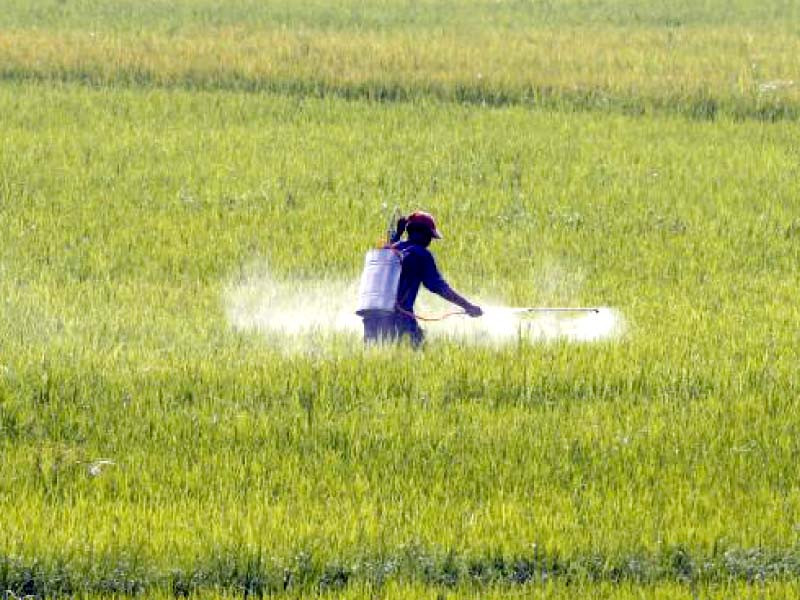
The alarming surge in production costs, skyrocketing by 100% to 150% over the past 18 months, has set a distressing upward trend into motion across the country. For farmers, this is further compounded by the devastating floods of 2022, severely impacting the economic condition of growers. In light of these challenges, farmers are urging both the federal and provincial governments to craft a budget that takes these factors into careful consideration.
Highlighting the grim situation in a statement, the Sindh Abadghar Board (SAB) stated, “The cost of production has increased by 100% to 150% in the last 12 to 18 months.” This surge continues unabated, with the floods of 2022 exacerbating the economic plight of growers. The SAB emphasised the importance of the government devising a budget that acknowledges these factors.
According to a report released by Taurus Research, Pakistan’s GDP growth has plummeted to a meager 0.3% in fiscal year 2023, down from 6% the previous year. The agriculture sector, deeply affected by the floods, has suffered a significant decline. The industrial sector contracted by approximately 3% year-on-year (YoY) due to import restrictions, heavy reliance on imported raw materials, and decreased demand. Meanwhile, services experienced a modest growth of around 0.9% YoY.
Provisional figures indicate a decline in agriculture growth to 1.6%, a stark contrast to the 4.3% growth witnessed in FY2022. The catastrophic monsoon floods severely impacted important crops and cotton ginning segments, resulting in losses. However, the livestock, forestry, and fishing sectors demonstrated growth. The slowdown in rural economic activity, coupled with soaring inflation, has further hampered demand for allied industries.
SAB, Senior Vice President, Mahmood Nawaz Shah emphasised the need to control the relentless rise in input costs or to compensate farmers through commodity prices. While the government has fixed prices for wheat, sugarcane, and cotton, the increasing input costs make profitability barely sustainable. Shah called for the activation of the Agriculture Policy Institute to devise viability plans for farmers by assessing the production costs of major commodities.
To address the challenges faced by rural areas, Shah suggested providing subsidised solar or air turbine solutions for tube-wells, high-efficiency irrigation systems, and farming businesses. Additionally, he proposed an oilseed development policy that incorporates considerations of farmers’ viability, regulatory measures, seed availability, and the provision of palm plants. The controlled import regime with tariffs on oils, such as sunflower and soybean, should be developed to encourage local production and reduce the import bill of pulses, which has reached $820 million.
Access to credit for small and medium-sized (SME) growers remains limited, with only 5.5% of the formal credit portfolio allocated to agriculture. The availability of credit is less than 20% of agricultural GDP, and there are distortions in terms of non-crop sector financing and provincial disparities. SAB, Member, Azam Rind emphasised the need to double the agriculture portfolio, increase formal credit allocation to provinces with lower availability, such as Sindh, and streamline loan procedures for better credit access by SME growers.
The Reforms and Resource Mobilisation Commission (RRMC) has proposed the extension of Capital Value Tax (CVT) as a minimum tax on movable and immovable assets, including agricultural and business properties exceeding Rs100 million in value. In a bid to support growth in the microfinance industry, the government has also put forward a proposal to reduce the corporate tax rate on microfinance banks from 29% to 20%, as they play a crucial role in providing microloans to small customers involved in agriculture, livestock, and SMEs.
Imran Bozdar, another SAB member, highlighted the potential of horticultural products to contribute to Pakistan’s economy through the production of value-added exports. Bozdar urged the encouragement and support of the horticultural processing industry through public-private partnerships, interest-free loans, marketing support, and incubation programs. These initiatives should be directed towards investment in rural areas where raw materials are abundant and restricted to SMEs.
Recognising the urgency of climate change, the SAB vice president emphasised the need for Sindh to develop a comprehensive plan to manage water by restoring existing waterways in the province. He also advocated for the establishment of a Climate Change Endowment Fund to enable swift and efficient responses to disasters.



1732243059-0/mac-miller-(2)1732243059-0-165x106.webp)

1672385156-0/Andrew-Tate-(1)1672385156-0-165x106.webp)












COMMENTS
Comments are moderated and generally will be posted if they are on-topic and not abusive.
For more information, please see our Comments FAQ